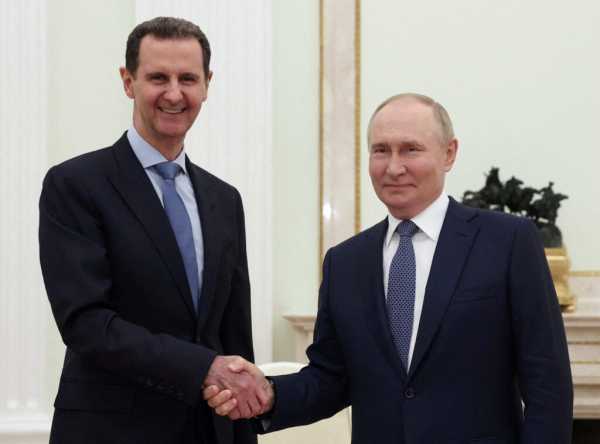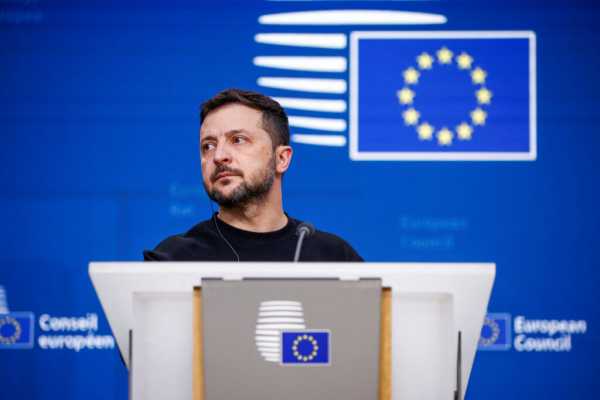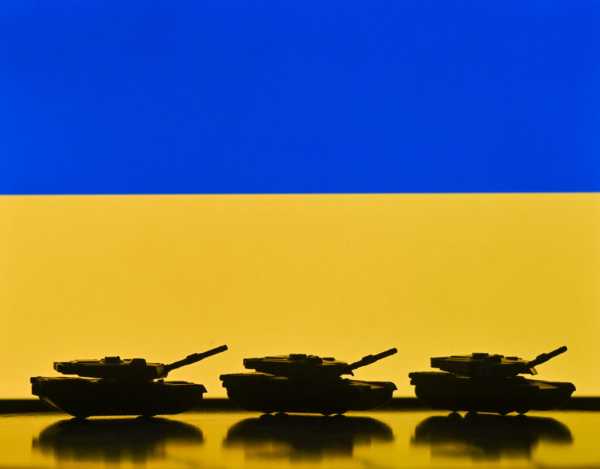
While many commentators are already speculating about the possibility of peace talks over Ukraine in the coming months, there is little indication that Russian President Vladimir Putin is interested in a negotiated settlement. Ukrainian military commanders are certainly not counting on any pause in the fighting, and are instead preparing for the fourth year of Europe’s biggest war since World War II.
Russia has maintained the initiative on the battlefield throughout 2024, and has managed to make gains at various points along the war’s roughly 1,000-kilometer front lines. While Moscow has failed to make any significant gains, the relatively small gains of the past year have marked a shift away from the largely static front lines in 2023. Unless the underlying causes of this Russian progress are addressed, Putin’s invading army could make a more decisive breakthrough next year.
Russia’s gains in 2024 are largely due to the tactical and technological adaptations made since the early stages of the war. At the same time, Moscow has also clearly benefited from a number of problems plaguing the Ukrainian military, with troop shortages, poor leadership, and supply uncertainty at the top of the list. Ukraine’s survival as a state may now depend on the country’s ability to address these issues in the coming months.
Ukraine entered the war in February 2022 with a large number of highly trained soldiers who had gained valuable experience during the previous eight years of sporadic fighting against Kremlin forces in eastern Ukraine. These seasoned troops played a key role in Ukraine’s early successes, adopting an often innovative approach to warfare that helped offset Russia’s overwhelming advantage in terms of firepower.
Russia confronted Ukraine’s greater creative force on the battlefield by increasingly relying on sheer numbers. In September 2022, Putin announced Russia’s first mobilization since World War II. This dramatically increased the number of Russian troops in Ukraine and set the stage for the human wave tactics that made Moscow’s subsequent successes possible.
Meanwhile, Ukraine’s heavy losses since 2022 have robbed numerous army units of their most experienced fighters. In many cases, this has led to a sharp decline in battlefield effectiveness. Large numbers of promising young Ukrainian officers who should have risen through the ranks to senior command positions have instead been killed, wounded, or simply exhausted by nearly three years of relentless fighting.
The Ukrainian army is currently facing increasing problems in recruiting new soldiers to replenish its depleted ranks. This is partly due to the demoralizing impact of persistently high casualty rates and the lack of prospects for demobilization while the fighting continues. It also reflects declining confidence in the quality of Ukraine’s military leaders and concerns about persistent shortages of both weapons and ammunition.
Changes to Ukraine’s mobilization rules introduced in the spring of 2024 failed to adequately address the underlying causes of this growing labor shortage. Instead, the past year has seen record levels of desertion, further undermining Ukraine’s already weakening defenses. Unless action is taken to reverse this trend, the consequences for Ukraine could be catastrophic.
The increasingly acute challenges facing the Ukrainian military, both in quantity and quality, require a combined response from Ukraine and its allies. This must include improved infantry and officer training, measures to root out our ineffective commanders and improve coordination between units, and a significant increase in the flow of military supplies from the international coalition supporting the Ukrainian war effort.
This will require closer cooperation and an end to the current blame game between Ukraine and the country’s partners. In recent months, officials in Kyiv have tried to blame their problems on a lack of sufficient international military aid, while allies, including the United States, have begun to question Ukraine’s mobilization strategy and call for a lowering of the draft age. This blame game does little to resolve the growing crisis in the Ukrainian military.
With Russia’s full-scale invasion of Ukraine set to pass the three-year mark next month, it is clear that the policies pursued in Kyiv and other Western capitals since 2022 are no longer working. Ukraine’s manpower problems cannot be overcome by relying solely on patriotic sentiment and superior combat experience. What is clearly needed is a more systematic approach to training and equipping new troops, accompanied by measures to improve leadership and accountability in the Ukrainian armed forces.
Likewise, piecemeal arms deliveries will not persuade Russia to stop invading. The protracted debates and regular delays that have characterized international military support for Ukraine since 2022 have done much to convince Putin that he may ultimately outlast the West.
The Kremlin dictator faces his own personnel problems amid Russia's catastrophic losses. But he can call on a population four times larger than Ukraine's, and he can afford to attract volunteers with large cash incentives. The recent addition of more than ten thousand North Korean troops has further eased the pressure on Russian army recruiters.
If Ukraine’s partners really want to change the mood in Moscow, they must make a much longer-term commitment to providing Kyiv with military support and demonstrate their determination to defeat Russia on the battlefield. Wars of attrition, like the current Russia-Ukraine war, are won and lost by the use of superior resources. On paper, the West has the collective wealth and technological capabilities to completely crush Russia. Yet almost three years into the full-scale invasion, Western support for Ukraine remains tempered by talk of compromise and fear of escalation. Putin interprets this as weakness and is emboldened.
Ukraine is currently in a race against time to resolve a number of key issues that threaten to undermine the country’s war effort and hand Putin a historic victory in 2025. Supporting Kyiv’s efforts is an urgent matter for European leaders and should also be a priority for the incoming Trump administration. Donald Trump has promised to end the war, but he is likely to find Putin unwilling to negotiate unless the United States can undermine his confidence in victory and significantly strengthen Ukraine’s negotiating position.
Nikolai Beleskov is a research fellow at the National Institute for Strategic Studies and a senior analyst at the Ukrainian public organization “Come Back Alive.” The opinions expressed in this article are the personal position of the author and do not reflect the opinions or views of NISS or “Come Back Alive.”
Source: Source



